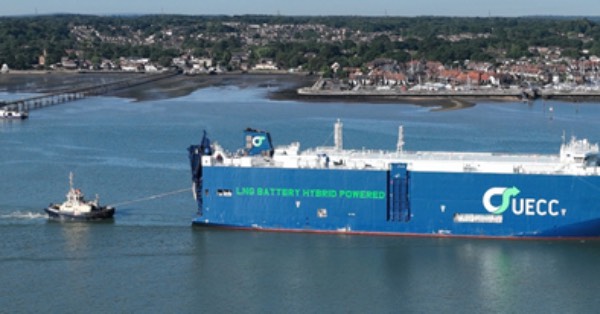Biofuels are among the most effective fuels for decarbonisation in the short term as these are readily available and can deliver easy, immediate cuts of as much as 100% in tank-to-wake emissions for existing vessels.
The new partnership will result in a reduction of almost 25% in UECC’s seaborne Scope 3 emissions – covering indirect emissions associated with business operations across IUCC’s value chain. It is estimated that CO2 emissions from UECC’s towage operations at the ports of Esbjerg, Gothenburg and Malmo will be reduced by more than 300,000 kilograms over the term of the agreement with Svitzer.
UECC’s energy & sustainability manager Daniel Gent comments:
“With this agreement, UECC once again positions itself in front of the market, demonstrating that decarbonisation projects are scalable and available. This project aligns with our own supplier policy, which looks to holistically reduce the environmental impact of our business operation, far beyond regulatory requirements.”
Sven Lumber, head of EcoTow at Svitzer, comments:
“We are extremely pleased to see UECC among the first-movers on EcoTow in Scandinavia. With this agreement they join other global Svitzer customers who partner with us around decarbonisation, gaining the ability to include externally audited CO2 emission savings in their reporting. This shows a strong desire on the part of UECC to demonstrate environmental responsibility.”
Shipowners will have to meet more stringent environmental performance standards with implementation of the IMO’s Carbon Intensity Indicator from 1 January 2023 and the Fuel EU Maritime regulation due to be phased in from 2025.









































